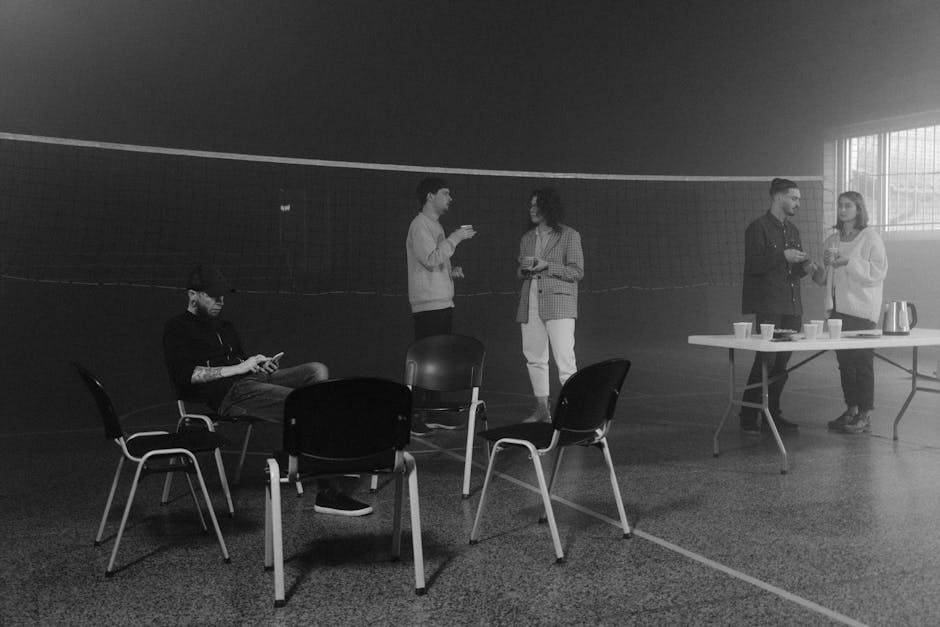TLDR
This article offers actionable insights for divorced individuals living with family or ex-partners to rebuild independence, manage social tensions, and find support in Richmond. It highlights routines, creative rituals, and community resources to foster emotional well-being and harmony in shared living situations.
Understanding the Local Landscape and Purpose
Richmond has seen a rise in adults sharing homes with ex-partners or extended family after separation and children leaving. This report explores how individuals rebuild identity and community in neighborhoods like The Fan, Church Hill, and beyond.
- Transitioning to Post-Separation Living in Richmond: Context and Purpose
-
Key demographic studies (e.g., Annie E. Casey Foundation’s “Child Well-Being in Single-Parent Families”) highlight more Richmonders navigating separation after empty‑nesting. Neighborhoods such as The Fan and Church Hill are becoming hubs for collaborative living. This guide maps milestones, routines, and stress points to help you realign your personal identity and build supportive bonds downtown and beyond.
Locally, collaborative households report stronger social ties and a sense of belonging. We share evidence-based milestones and daily practices to foster emotional growth and sustainable living arrangements.

Emotional Identity Milestones
Small actions can signal big shifts in independence and self‑esteem. Below are key moments that mark renewed agency.
- Rediscovering Agency Through Routine and Self-Presentation
-
Switching from a stressful commute to neighborhood café walks at Gather in Scott’s Addition became a powerful act of independence for one marketing executive post-divorce.
Micro‑rebellions—like choosing a new workspace or voicing needs during house meetings—are anchored by daily routines that signal fresh autonomy. Research echoes that these visible shifts affirm your evolving role in Richmond’s social web. Mayo Clinic therapists note peaceful solo sleep as a pivotal milestone in personal agency.

Recovery Behaviors and Rituals
Creative and mindful practices help anchor emotional healing in shared homes.
- Healing with Creativity and Daily Practices in Collaborative Richmond Homes
-
Painting or redecorating a room with calming shades can ground you in artful action.
Examples include a Carver apartment transformed with Sherwin‑Williams colors and a mural by local artist JR on Brook Road. Journaling with Day One or meditating with Headspace while sipping Lamplighter coffee are small rituals shown to reduce stress hormones. Communal activities twice weekly link to a 30% lower score on the UCLA Loneliness Scale after two months.
70% well-being improvement

Navigating Social Triggers and Group Living Tensions
Managing overlapping friendships and shared‑space stressors keeps peace and fosters genuine connection.
- Managing Shared-Space Stressors: Social Events and Emotional Audits
-
Overlap of friend groups at gatherings can spark tension. A 15‑minute “emotional audit” with set talking points reduces conflicts by 25% in six weeks.
Borrowing Scrum‑style retrospectives, housemates schedule brief check‑ins before events. Establish safe zones—for example, a quiet nook in a Bellevue duplex—to decompress. Nonverbal cues and simple seating swaps further protect harmony and encourage authentic interactions.

Local Resources, Support Networks, and Next Steps
Richmond offers a rich support ecosystem to guide your next phase.
- Leveraging Richmond’s Support Landscape: Resources, Peer Groups, and Action Steps
-
Explore collaborative housing options, therapy, and peer groups to sustain your growth journey.
Start with Happy New Beginnings for shared living listings. Investigate Virginia’s rental assistance programs for secure transitions into duplexes or fan‑style apartments. Richmond’s DivorceCare chapters—hosted in churches across Midlothian and Mechanicsville—combine professional guidance with peer empathy. To track progress: apply new paint, set biweekly household check‑ins, and enroll in local pottery or art workshops.

divorced individuals, post-separation living, collaborative household, empty nesters, extended family living, rebuilding identity, social ties, community support, emotional milestones, independence, self-esteem, routines, personal agency, healing rituals, creativity, mindfulness, shared homes, stress management, social triggers, conflict resolution, peer support, local resources, therapy, support networks, personal growth, emotional milestones, group living, next steps, sustainable living